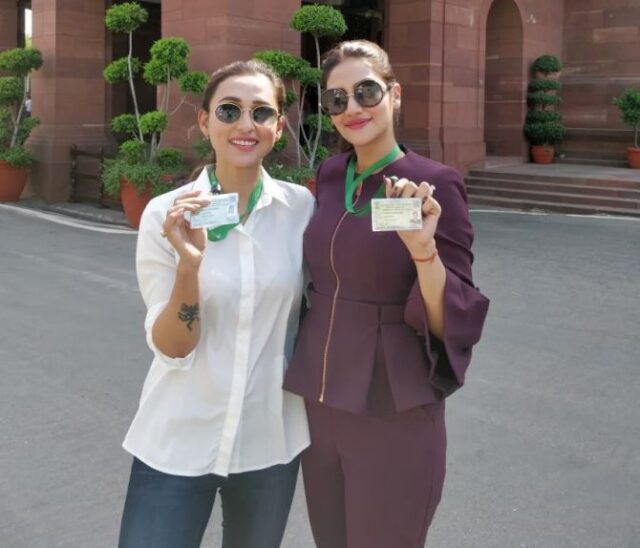Written by: Aishwarya Nair
Indian politicians always find themselves in the news due to their activities or remarks. Politics is inadvertently one of the major discourses that India loves to follow. While our news channels are almost always showcasing opinions of and by politicians, challenges faced by female Indian politicians often do not get highlighted.
Women’s Reservation Bill of having 33% of seats reserved in the Lok Sabha is still pending and currently, the number of members in the Parliament are falling short to be anywhere near this number. Indian politics is not at all friendly towards women candidates and they undoubtedly have it way more difficult than men in the Indian political scenario.
Ranging from snide remarks to being judged for their clothing, female Indian politicians have to fight a tough battle to pave their way to politics, but they still end up getting branded as ruthless.
It is important to look into how women are perceived and how their male colleagues approach the subject of gender in the political scenario.
Dressing Down

Indian politics is an extremely uneven playing ground. Female politicians are always expected to be in sarees, salwar kameez or cover their heads as a ‘dress code’, and often receive flak if done otherwise. Even as recently as 2019, two female MPs were trolled on social media for having worn “western clothes” and looking “vulgar”.
Recently, during the West Bengal election rallies, a senior politician took offence as the current CM Mamata Banerjee “exposed” her injured leg, which, according to him was a “blatant skin show”.
Even actresses-turned-politicians transform their looks by attending public events in sarees and other acceptable clothes to garner public support. Due to this obvious sexism in this patriarchal society, female politicians still wear clothes that they normally wouldn’t in their daily life.
While our society openly welcomes the Indian Kamala Harris and her high heels, TMC MP Mahua Mitra’s branded handbags and makeup are expected to reduce her political stature.
Snide Remarks
While politicians often like to remark on their colleague’s behaviour in public or otherwise, it can be said that remarks against female politicians are often doused with sexism and attacks their gender.
West Bengal BJP president Dilip Ghosh is still unapologetic of his remarks on Mamata Banerjee having insulted Bengali culture by “deliberately keeping her foot out while wearing a saree” while completely ignoring the fact that she was injured.
In 2020, Madhya Pradesh’s former CM Kamal Nath addressed State Minister Imarti Devi as an “item”, which is considered derogatory in colloquial language. Senior female politicians such as Priyanka Gandhi and Smriti Irani are also bashed by the media and politicians alike.
Smriti Irani is often subjected to sexist remarks due to her past career as a television actress.
In one such inciden,t as quoted by Newslaundry, when Irani complained about a CCTV camera facing the dressing rooms at a store, a senior journalist passed a remark covering the story, saying, “How the actress who had faced the biggest of television cameras of all sizes and shapes could get so rattled by a pinhole CCTV eye, we will never know.” Comments like “Suna jata hai ki aap Modi-ji ke bade karib hain (It’s said that you’re very close to Modiji)” are also often used in a very sexual manner.
Meanwhile targeting opposition parties, politicians often indulge in sexist connotations like, “It is BJP’s bad luck that they do not have someone as beautiful as Priyanka Gandhi in their party. They only have khurdure (ugly, rough) faces,” (as spoken by politician Kamal Nath) and “An election is neither a wrestling match nor a beauty contest. Nor is it a competition of some other type. BJP has more beautiful women star campaigners than Priyanka Gandhi (as spoken by politician Vinay Katiyar).”
It is extremely hard to be a female politician in India since it invites all sorts of snide remarks and contextualising the politician as a woman first and their political ideologies second.
It is not a coincidence that three ever-so-popular women politicians with an iron fist are deemed spinsters and addressed as Didi, Amma and Behenji.
While female politicians are often bashed by their male colleagues, the fact that social media and trolls also partake in the same highlights how sexist Indian society and politics is – and it is high time this issue is addressed seriously.
Note: The article was originally published here.
